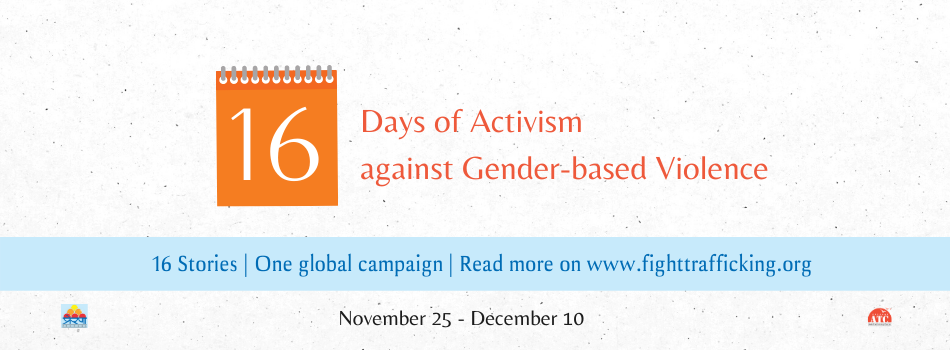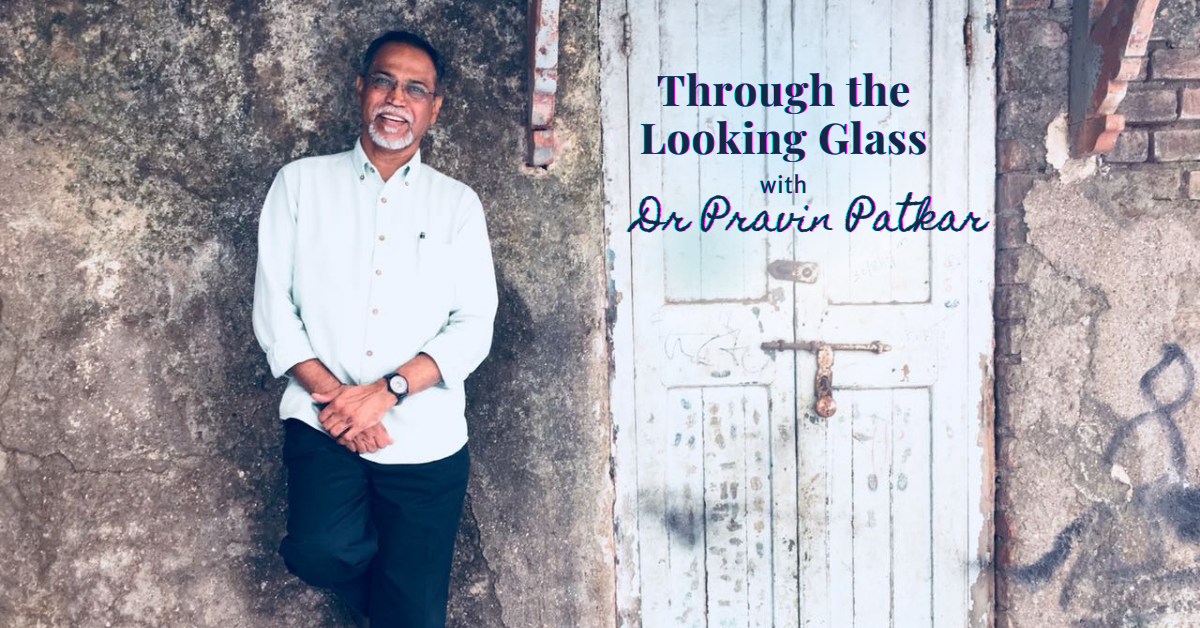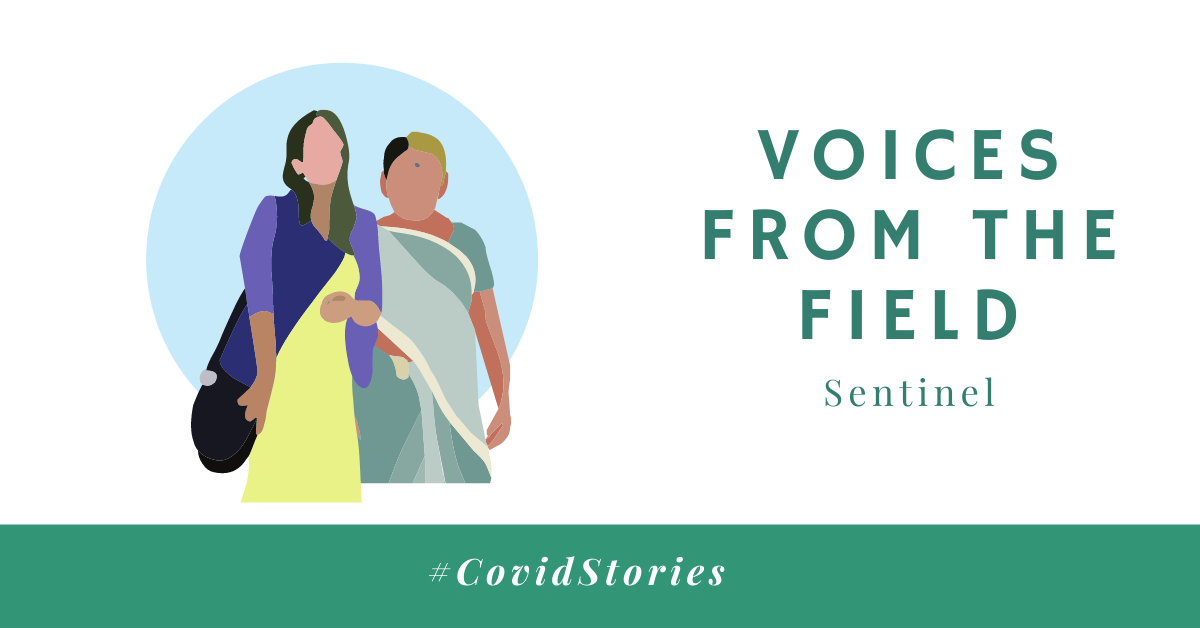
Day 13: Working with Victims of Sexual Violence - An Interview
Azra Qaisar
Documentation and Communications Manager,ATC
16 Days of Activism against Gender-Based Violence is an annual international campaign that runs from 25th November, the International Day for the Elimination of Violence against Women, till 10th December, Human Rights Day. As part of Prerana’s campaign under 16 Days of Activism, this year we are focusing on understanding domestic violence in the context of victims of sexual violence.
Prerana’s Sentinel team works with minor victims rescued from commercial sexual exploitation and trafficking. The team works with children through referrals from the Child Welfare Committees in the districts of Mumbai-Suburban and Thane. Through their work, the team has come across many situations of violence within the home or violence in intimate partner relationships. Ms. Aaheli Gupta (Casework Manager), Ms. Jyoti Jangir (Project Coordinator), and Ms. Priya Ahluwalia (Counselor) from the Sentinel team shared their observations and insights on the link between domestic violence and the vulnerabilities of victims of commercial sexual exploitation.
What has the experience of the Sentinel team been regarding domestic violence, through its work with victims of commercial sexual exploitation?
Aaheli: We come across situations where a child who has been restored to her family, or a young adult who has exited the juvenile justice system is facing violence at home. We had been following up with a girl, Fiza* for a few years while she was in the juvenile justice system. After her exit, she got into a romantic relationship with a man from her neighborhood. From our interactions with Fiza, we could gauge that the relationship was both physically, and emotionally abusive to her but she did perceive the behaviour as harmful. Earlier this year, she was pregnant with his child, and he had pressurised her to go through an abortion. She did not terminate the pregnancy and did not end her relationship with this man. In another case, Arushi* is a victim of commercial sexual exploitation, who has exited the juvenile justice system. She has been staying with her mother amid the pandemic. She does not share an amicable relationship with her mother, which often manifests in her mother shaming her for having been a victim of sexual violence. The mother has exhibited emotionally abusive behavior towards her daughter after the restoration.
Jyoti: In Fiza’s case, while she has been facing violence by her partner, she has been perpetrating it onto her younger sister, Aisha*. She often beats Aisha and says that she does it out of ‘love’ as she does not want her sister to go through the same trauma that she had. Fiza does not recognize and accept violence as abuse in both the relationships – neither with her partner nor with her sister. Aisha on the other hand is also a victim of sexual assault with whom we have been following up. The sisters are orphans and do not have any family except each other so even though Fiza is violent, Aisha shares that she would rather be with her than be placed in a shelter facility.
I would like to add that it is not always that children or youth do not recognize violence. Simrit’s* came to us as a child in need of care and protection. Her mother is a victim of commercial sexual exploitation, who stays with her partner. The partner often beats her up. I remember Simrit asking me once “Didi, I don’t understand why my mother wants to stay with this man when he hits her so much”. Children observe many things, and if we do not help them understand violence as a violation of their fundamental rights, they may begin to internalize and normalize it.
Are victims of sexual violence more vulnerable to domestic violence?
Priya: Emotional and verbal violence can lead to violence towards the self or self-harm, especially in children living in child care institutions. Through my interactions with children in counseling sessions, I have observed that there may be a greater vulnerability in children who belong to communities like Bedia, Banchada who practice intergenerational prostitution.They are de-notified tribes that have a history of selling their daughters into the sex trade. They internalize violence at an earlier age, and may not be able to recognize it as a violation. For many victims, it is challenging to understand that a slap or a beating is also an act of violence.
Many times, as Jyoti mentioned earlier, people conflate love with violence. They think that if a partner is hitting them, it is a part of the relationship. What have your experiences been in this regard?
Priya: This is a classic case of conditioning. I have heard our clients say things like “ Woh marta hai magar phir pyaar bhi karta haina” (He hits me but also showers me with love after that). The love, or its manifestation in the form of a hug or a present, after the act of violence, makes it acceptable to many victims. It also conditions them to believe that one will follow the other.
Trauma response also plays out in such situations. If a person feels lonely and craves affection, there is a possibility that feeling any emotion, feels like a better alternative than numbness. Another important thing to note here is that victims may start weighing and comparing acts of violence to one another. If their parents were abusive to them and made them feel that they did it out of love, it is possible that when their partner exhibits the same behavior, the person will accept it as love as well.
Jyoti: I agree with Priya. Victims may compare the violent behavior of their partner, with the one shown by their father, and rationalize it as the norm. In many marginalized communities, the violence may be such an everyday occurrence that it is challenging to help them associate the same with the violation.
Aaheli: There seems to be this belief at play that the partner has the right to hit because the parent had the right to hit. Violence is accepted as a legitimate expression of love and victims of violence due to their background and circumstances are willing to accept this form of love.
Have you come across cases where a woman was perpetrating domestic violence on a male victim?
Priya: In my limited experience, I have not witnessed this but I think women do not tend to be physically violent and may resort to emotional abuse. They may respond to a situation of violence by using their words, rather than their hands. First, they may feel helpless as victims, and one way to respond would be by using hurtful words. It is a protective mechanism for them. Second, they may also realize that if they actually resort to physical violence, the man may beat them more.
How do you think that we can do better as a society, especially for victims of sexual violence?
Jyoti: In our Naunihal Home, we equip the girls with the knowledge of what counts as violence. We facilitate workshops on the Protection of Women from Domestic Violence Act, 2005, Sexual Harassment of Women at Workplace (Prevention, Prohibition and Redressal) Act, 2013, etc, to equip them with the necessary tools to navigate their way once they leave the institution. A strong suit for Naunihal is the amount of social exposure that the girls receive – be it interacting with certain experts, professionals, or just participating in diverse programs and events. When children themselves experience the changing perceptions and mindsets, they might be able to reflect on their own beliefs and values better and inculcate the necessary changes in their lives better.
Aaheli: I think it is important to talk to the child about domestic violence in the exit sessions. We should give them situations and examples to help them understand it better. For children that are restored, we have to work with families to help them understand that they cannot revictimize or shame the child for the trauma that the child has faced.
Priya: I think we, as a society, tend to normalize violence a lot, and the media has a fair share of roles to play here. Language plays an important role too. I have heard adults tell children “ Maar kha kar hi sikhegi ye”( She will only learn if gets a beating). When we talk to children like this, they normalize violence. I also think that patriarchy crushes the self-esteem of women and if we are to work on preventing violence, we have to build that self-esteem again. Gaslighting women who raise issues has to be stopped. We have to make women and girls feel that they are worthy, and valued, and do not deserve violence. We also need to actively build a culture of consent, with young boys and girls. For young boys especially, we need to make sure that they know – “I am important and so is the girl next to me”. It won’t happen in a day but these are some ideas to start the conversation at least.
To be or not to be? Questions on motherhood searching answers
Over the past decade we have come across an increased use of the term survivors to refer to victims of Read more
As stakeholders working with young women, it is important that we understand the structures in which these young women are Read more



